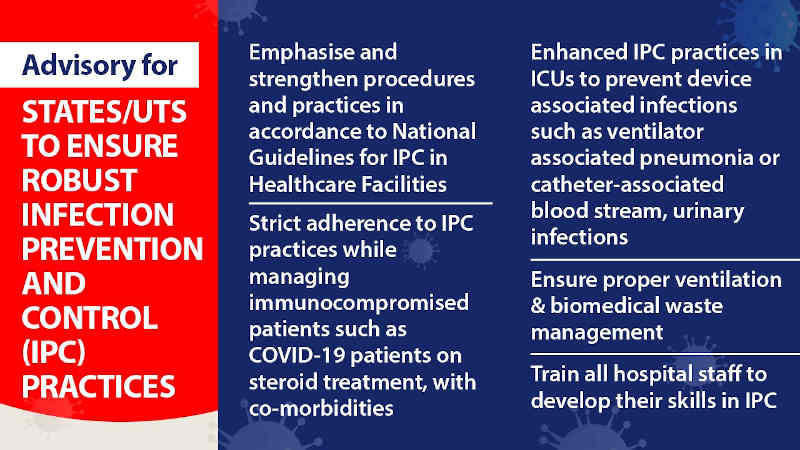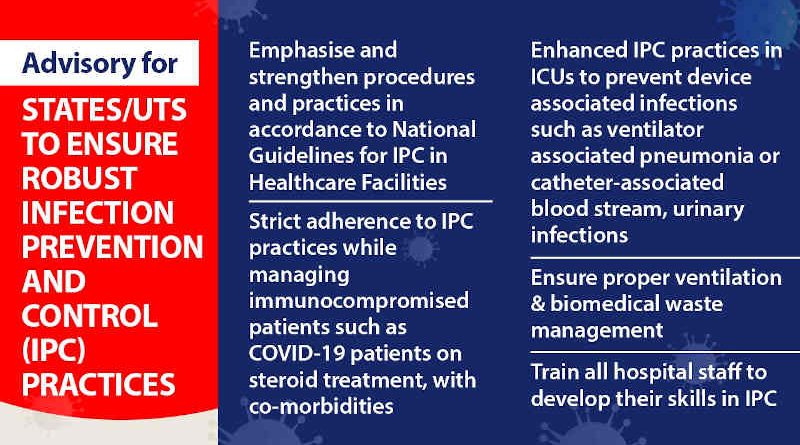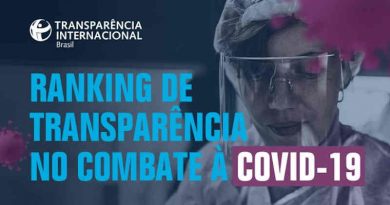After Covid-19, Beware of Black Fungus and White Fungus

While Covid itself is still a conundrum for health experts, now the virus is evolving to pose more health risks.
In recent days, some States and Union Territories (UTs) in India have reported an increasing number of patients suffering from Mucormycosis also known as Black Fungus.
It is being observed that the fungal infections are getting amplified during the present surge in Covid-19 cases and Mucormycosis has become a cause of concern. The main reason for the increasing number of Black Fungus cases is believed to be the lack of hygiene and haphazard medical treatments in Indian hospitals.
In a health advisory released on May 21, India’s Ministry of Health has advised all States and UTs to review their preparedness for Infection Prevention and Control (IPC) as well as hygiene and sanitation in hospitals. The Ministry has advised them to ensure that there are robust IPC measures in Covid hospitals and other healthcare facilities.
The Health Ministry urges hospitals to enhance IPC practices in Intensive Care Units (ICUs) using a bundle-approach to prevent device-associated infections such as ventilator-associated pneumonia, catheter-associated bloodstream infection, catheter-associated urinary tract infection, surgical site infections, etc. More information is available at AIIMS HAI (Healthcare Associated Infection Surveillance In India) network website.
The Health Ministry says that there is a need to educate all hospital staff to develop their skills in IPC, irrespective of their individual routine duties, in implementing procedures and protocols described in the Hospital Infection Control Manual.
Also, a State Nodal Officer needs to be identified to monitor the implementation of IPC measures and provide feedback of the IPC programme in the state.
Meanwhile, WHO’s latest global survey on implementation of national IPC programmes highlights the urgent need to reduce inequalities in the availability of good hand hygiene and other IPC measures between high and lower income countries. A new WHO online monitoring portal will help countries identify and address gaps.
WHO finds that lack of financial resources and crumbling infrastructures are key challenges in the implementation of IPC guidelines. The 2020 WHO Global progress report on WASH in health care facilities: Fundamentals first report reveals that globally, 1 in 4 health care facilities does not have basic water services and 1 in 3 lacks hand hygiene supplies at the point of care.
Furthermore, according to the above-mentioned WHO national survey on 88 countries, the level of progress of hand hygiene and IPC programmes, especially regarding actual implementation, was significantly lower in low- than in middle- and high-income countries.
While Covid itself is still a conundrum for health experts, now the virus is evolving to pose more health risks. Experts believe that Covid-related White Fungus infections are more dangerous than Black Fungus because they attack lungs and other body parts including nails, skin, stomach, kidney, brain, private parts, and mouth.
Similar to Black Fungus in which factors such as severe diabetes and suppression of the immune system increase infection risk, White Fungus is dangerous to patients who have low immunity.
It is being observed that diabetic patients and those who are on steroids – which suppress the immune system – are more vulnerable to catching the fungal infection.





